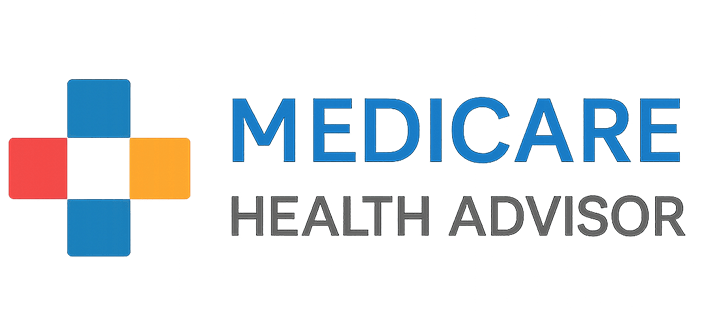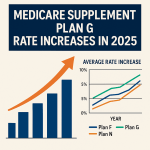f you’re a Medicare Advantage plan member who loves the perks of the Over-the-Counter (OTC) card—groceries, transportation, utilities, and more—you need to be aware of major changes coming in 2026. The biggest question on everyone’s mind is: Can I use my OTC card to pay my insurance premiums? The short answer? Still no. But that’s just the beginning.
Let’s break it down.
What Is an OTC Card?
An OTC card is a preloaded debit card that many Medicare Advantage (Part C) plans offer as part of your supplemental benefits. This is not cash and can’t be used everywhere. The card is designed to be spent at approved retailers and for certain health-related expenses. But thanks to expanded flexibility over recent years, many people have been pleasantly surprised by just how useful the OTC card has become.
What Does the OTC Card Currently Cover in 2024–2025?
Here’s a look at what most major Medicare Advantage plans have allowed enrollees to use their OTC cards for up until now:
| Current OTC Card Uses (2024–2025) |
|---|
| Non-prescription drugs (pain relievers, vitamins) |
| Dental hygiene items (toothpaste, mouthwash) |
| First aid supplies |
| Healthy food & groceries (with eligible plan and condition) |
| Utility bill payments (electric, gas, water) |
| Transportation (Lyft/Uber vouchers, metro cards) |
| Fuel/Gas station purchases (select plans) |
| Internet/cell phone bills (select plans) |
For some folks, this benefit has been a lifesaver, especially when dealing with food insecurity, limited mobility, or managing a chronic condition on a fixed income.
But Can the OTC Card Pay Your Insurance Premium?
No. Medicare strictly prohibits using supplemental benefit funds to pay for premiums—whether it’s your Part B premium, Medicare Advantage premium, or Part D drug plan. That hasn’t changed, and 2026 will not allow this either.
However, people often ask this because they hear “you can use it to pay bills” and think premiums might qualify. They don’t. Only utilities and services directly supporting your health can qualify—and only on eligible plans.
What’s Changing in 2026?
Here’s where things get real.
Starting in 2026, CMS (Centers for Medicare & Medicaid Services) will implement new rules that limit the use of OTC card benefits, especially the healthy foods and grocery allowance, unless you meet stricter criteria.
The biggest shift?
You must have a qualifying chronic condition to use your OTC card for food, transportation, and other expanded items.
Let’s compare:
📊 Comparison: OTC Benefits 2025 vs 2026
| Benefit Category | 2025 Rules | 2026 Rules |
|---|---|---|
| OTC Medications | Eligible | Eligible |
| First Aid / Health Supplies | Eligible | Eligible |
| Groceries / Food Items | Eligible on many plans (based on plan design) | Only if you have a CMS-defined chronic condition |
| Transportation (e.g., rides to medical appointments or gas) | Eligible on many plans | Only if medically necessary & tied to chronic condition |
| Utility Bill Assistance | Eligible | Eligible |
| Cell Phone / Internet Support | Eligible (on select plans) | Likely restricted to chronic care needs only |
| Gym Memberships or Wellness Perks | Eligible (many plans) | Restricted by diagnosis |
What’s a “Qualifying Chronic Condition”?
According to CMS guidance, you may only get enhanced OTC card flex benefits (like food or transportation) if you’ve been diagnosed with at least one of the following:
- Diabetes
- Congestive Heart Failure
- Chronic Obstructive Pulmonary Disease (COPD)
- Cardiovascular Disease
- Chronic Kidney Disease
- Asthma (moderate/severe)
- Mental Health disorders like depression or anxiety (select cases)
And that’s not all—your plan will need medical documentation and might limit your card access to only approved vendors. So, if you’ve been using the card freely for groceries in 2025, that might not be the case next year.
How This Impacts You
1. If you don’t have a chronic condition, your 2026 OTC card may only cover basic OTC medications and supplies—not food, rides, or phone bills.
2. If you do have a chronic condition, documentation will be required from your healthcare provider for eligibility.
3. Plans will need to modify their Flex card marketing. Many brokers and members got used to saying “you get a grocery card!” That might soon be misleading unless the chronic condition requirement is satisfied.
What Should You Do Now?
- Review your plan for 2025. Don’t assume you’ll keep the same OTC benefits next year.
- Ask your doctor if your chronic condition qualifies you for continued flex/OTC food benefits.
- Work with a licensed broker who understands these changes and can explain your options for 2026.
Bottom Line
The OTC card is still a valuable benefit, but its flexibility is narrowing starting in 2026. While you still can’t use it to pay premiums, it’s been a useful tool for groceries, gas, and more. But going forward, only beneficiaries with a qualifying chronic illness will be allowed those extra benefits.
So don’t wait until the Annual Enrollment Period (AEP) to find out you’ve lost key benefits. Be proactive.
Got Questions About the 2026 Medicare OTC Changes?
Want to know if your condition qualifies? Wondering which plans will still offer grocery allowances?
Speak with one of our 100+ licensed Medicare Advisors in New York City—all experts in Medicare Advantage, Prescription Drug Plans, and plan selection tailored to your personal health needs.
📞 Call our trusted partner, Affordable Care Agents at 347-560-9396 or visit AffordableCareAgents.com to schedule your free Medicare consultation.
Disclaimer: “We do not offer every plan available in your area. Any information we provide is limited to those plans we do offer in your area. Please contact Medicare.gov.”
Article written by your neighborhood Medicare expert, the team behind MedicareHealthAdvisor.nyc
Summary
Big changes are coming to your Medicare OTC card in 2026—especially for groceries, transportation, and bill support. Starting next year, only members with certain chronic conditions will qualify for expanded flex benefits. Learn what your card still covers, what’s going away, and how to prepare before the Annual Enrollment Period.

















Add Comment